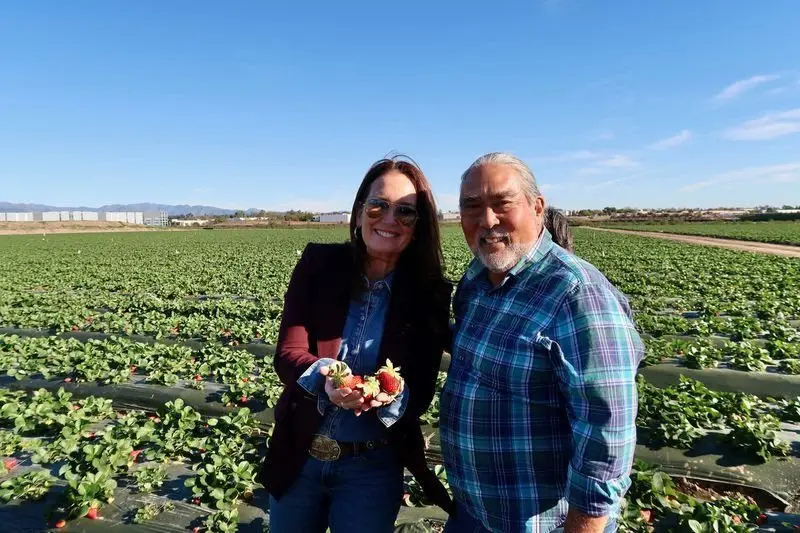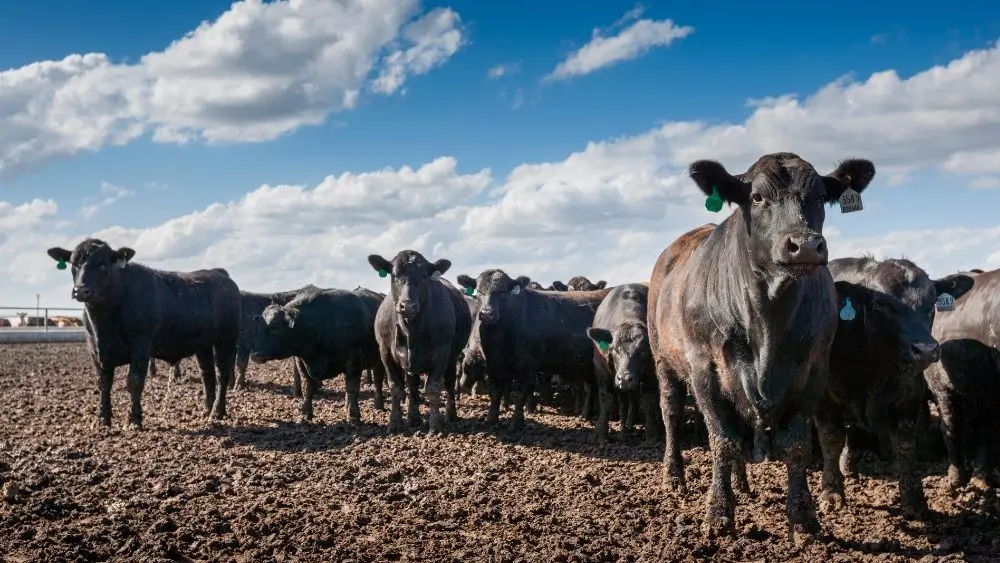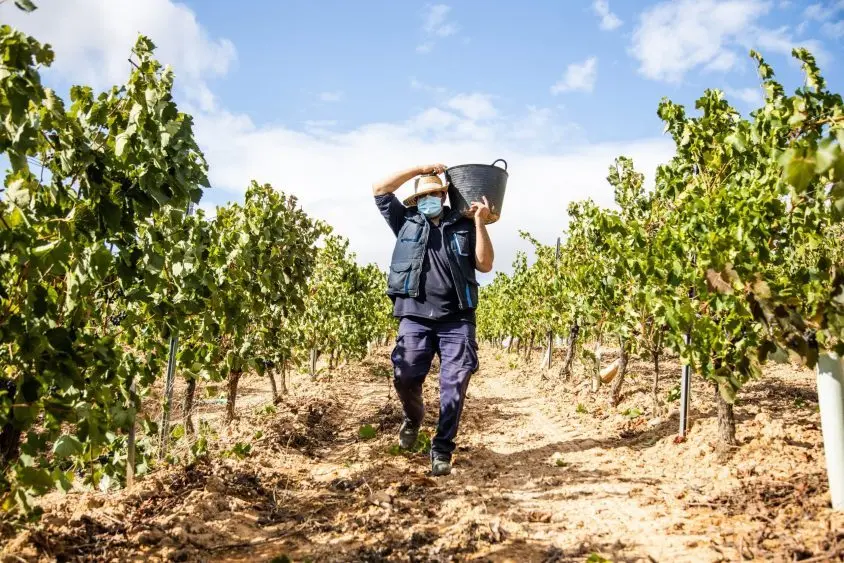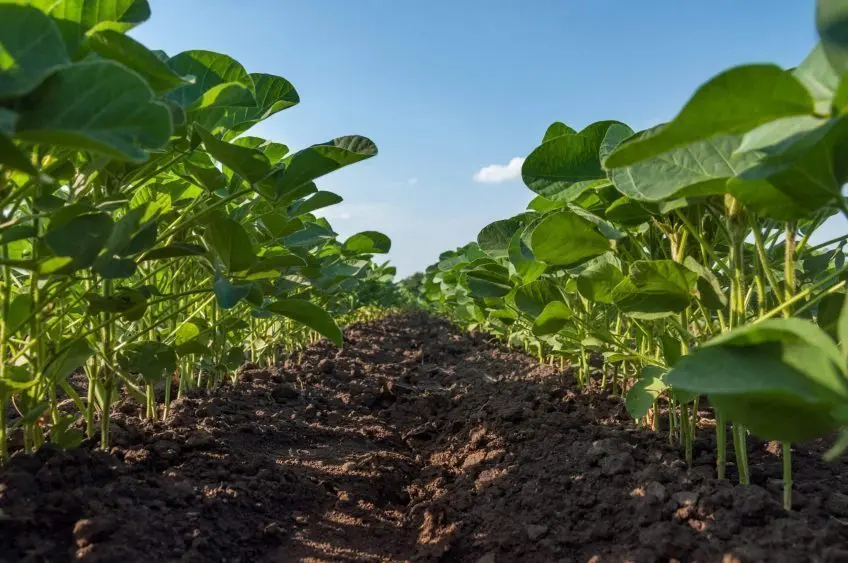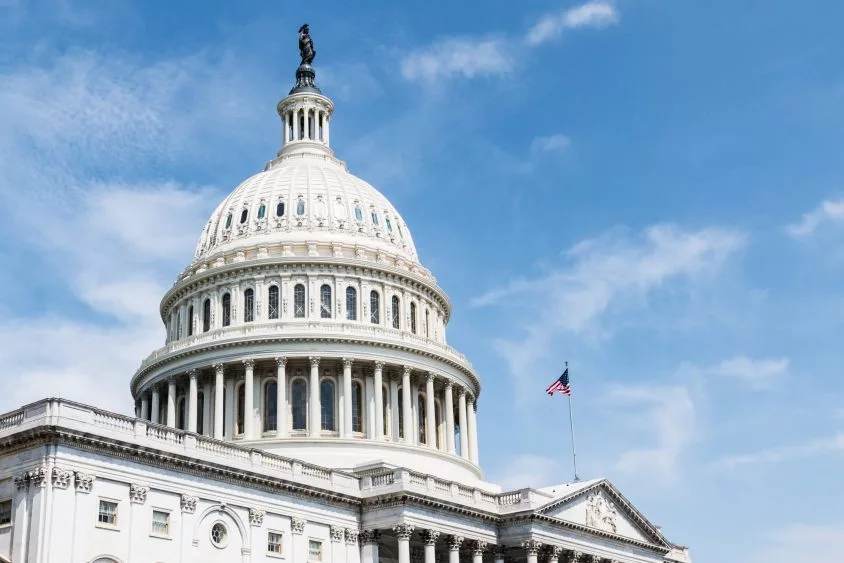
(WASHINGTON D.C.) — The “One Big Beautiful Bill Act” passed the Senate by a vote of 51-50 on Tuesday, with Vice President Vance breaking the tie. The budget legislation, which paves the way for much of President Trump’s domestic agenda, now heads back to the House of Representatives for reconciliation ahead of the President’s target deadline of passage by July 4th.
The bill includes many pieces of legislation important to agriculture as groups, like the American Soybean Association, shared their reaction after the bill passed the Senate. “ASA applauds the Senate for its support of U.S. agriculture,” says ASA President Caleb Ragland. “Soybean growers have long supported comprehensive revisions to the 45Z Clean Fuel Production Credit, an improved safety net for agriculture, and increased support for research and market expansion.” Ragland added that “The modified biofuel tax credits, enhancements to crop insurance and support for MAP and FMD, among other agriculture provisions included in this legislation will support U.S. farmers and expand market opportunities domestically. ASA urges the House to maintain these key agricultural provisions that support our rural economies as they consider this legislation.”
The National Corn Growers Association (NCGA) applauded pieces of the Budget Reconciliation bill as well. “NCGA has worked closely with members of Congress as they drafted and voted on this legislation,” said Illinois farmer and NCGA President Kenneth Hartman Jr. “We are particularly pleased to see the permanent extension of certain tax provisions, which will provide more certainty to corn farmers around the country as they plan for the future of their businesses.”
The National Cattlemen’s Beef Association also thanked the Senate for passing the legislation. “This bill protects family farmers and ranchers across the country from a massive tax hike at the end of the year, increases the death tax exemption, makes the Section 199a tax deduction permanent, as well as many other priorities,” said Ethan Lane, NCBA Senior Vice President of Government Affairs. “The Senate version of the bill also does not include controversial provisions that have gained national attention. The bill does not include any sale of public lands, and it does not include controversial language on eminent domain. NCBA’s grassroots policy supports landowners’ private property rights, and we oppose the expanded use of eminent domain.”
Chuck Conner, President and CEO of the National Council of Farmer Cooperatives said in a statement in part that “The National Council of Farmer Cooperatives applauds the United States Senate for passing the budget reconciliation bill—a critical step toward delivering long-overdue certainty to America’s farmers and cooperatives. The Senate package includes essential provisions that strengthen the rural economy, bolster global competitiveness, and lay the groundwork for long-term resilience in the face of market disruptions.”
Conner added that “We commend the Senate for advancing permanent tax relief through the extension of Section 199A, a key priority for farmer co-ops that ensures they are not penalized for doing business together. Equally important are the provisions extending Section 179 expensing and the clean fuel production credit under Section 45Z, which provide producers and co-ops with the incentives and tools they need to innovate, invest, and lead the transition to a more sustainable agricultural future.”
The National Cotton Council (NCC) applauded the efforts of the U.S. Senate, and the Senate Agriculture Committee, to ensure passage of the One Big Beautiful Bill (OBBB) Act. NCC says this key legislation includes language that strengthens the farm safety net and provides necessary enhancements to support farmers navigating the current economic environment.
“The NCC appreciates the momentous effort that has gone into crafting and passing the One Big Beautiful Bill,” said NCC Chairman, Patrick Johnson. “We are grateful for the Senate’s commitment to delivering meaningful enhancements to the cotton safety net, which is absolutely critical for the stability and future of our industry.”
National Sorghum Producers also applauded the U.S. Senate’s passage of its reconciliation package, which includes several important provisions that will strengthen the farm safety net and deliver meaningful benefits for sorghum growers. “These are critical improvements that will help sorghum producers manage risk, plan for the future, and stay competitive,” said NSP Chair Amy France, a farmer from Scott City, Kan. “We’re grateful to Chairman Boozman and other leaders in the Senate Ag Committee who ensured these priorities were part of the final bill.”
National Pork Producers Council President Duane Stateler, a pork producer from McComb, Ohio, said in a statement, “We appreciate the efforts of Agriculture Chair John Boozman and other Senate leadership to ensure key animal health provisions were included in the bill, along with tax and other measures important to agriculture. Foreign animal diseases (FADs) threaten not only the livelihoods of pork producers but also our food supply chain at large. We thank our congressional leaders for these important steps to help keep our pork supplies safe, secure, and affordable for American families.”
The legislation fully funds measures and programs that help prevent, prepare for, and respond to FADs, including $233 million per fiscal year for the following:
- $10 million per year for the National Animal Health Laboratory Network (NAHLN)
- $70 million per year for the National Animal Disease Preparedness and Response Program (NADPRP)
- $153 million per year for the National Animal Vaccine and Veterinary Countermeasures Bank (NAVVCB)
U.S. Senate Committee on Agriculture, Nutrition, and Forestry Chairman John Boozman (R-AR) released the following statement after Senate passage of the budget reconciliation bill that will improve efficiency, deliver permanent tax relief to America’s farmers, and invest in rural communities:
“Passage of this legislation is critical to delivering the promises made to the American people by President Trump. We make commonsense reforms to SNAP to ensure the program operates efficiently, is accountable to the taxpayers, and helps those who truly need it. There is also good news for hardworking farmers, ranchers, and producers who, for too long, were forced to operate under outdated policies. Our investments in farm country will support the long-term success of family farms and America’s agriculture industry, providing desperately needed and improved risk management tools, as well as a modernized farm safety net.”
